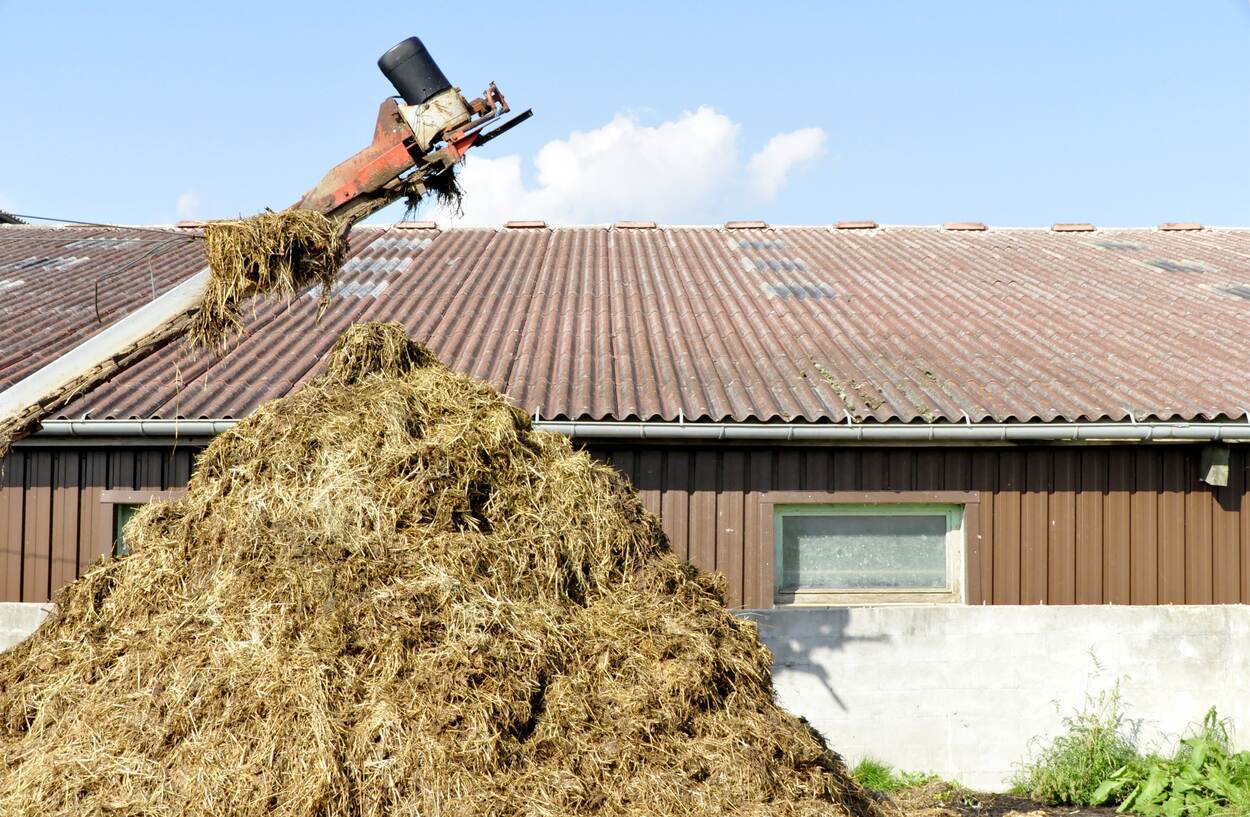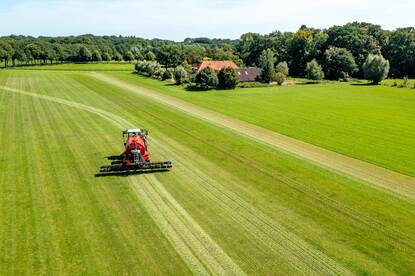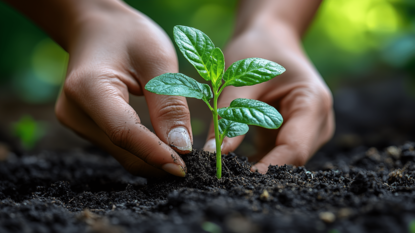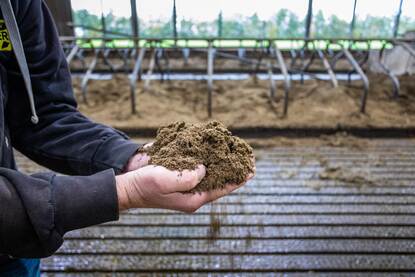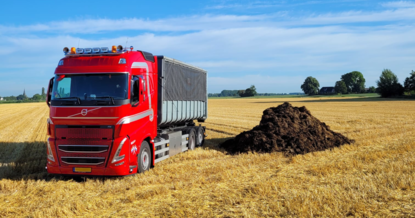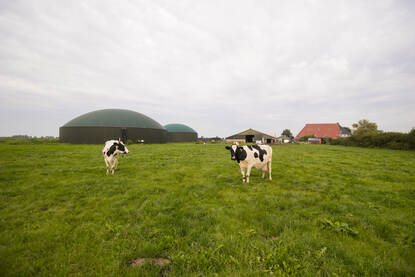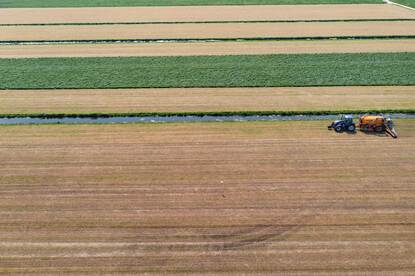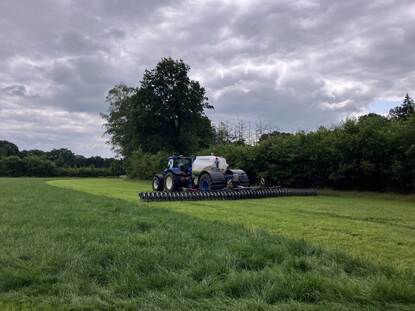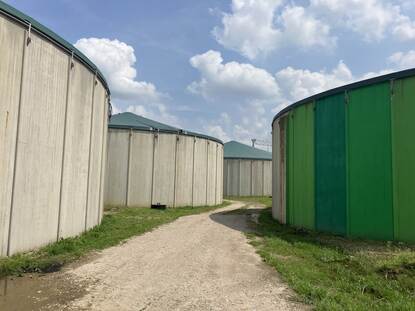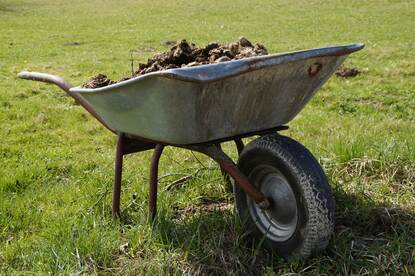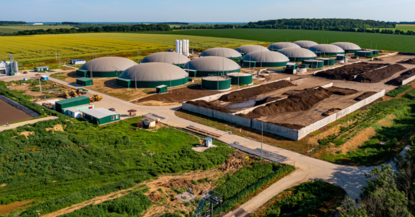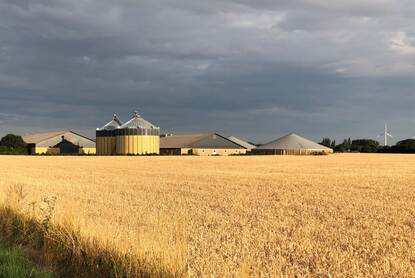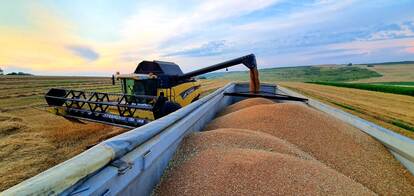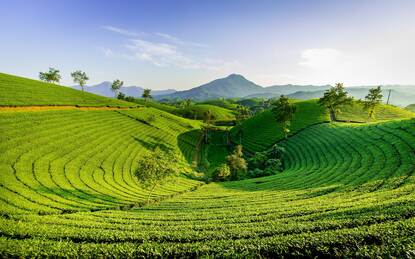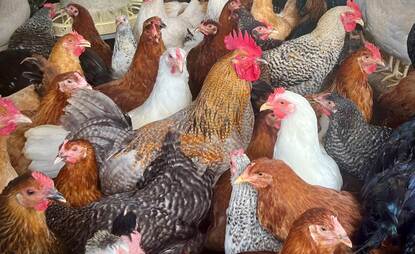Foto Pxhere
The Netherlands is seeing significant developments in the manure sector, with new fertilization rules, growing attention to sustainability, and increasing opportunities for farmers and the environment. In this interview, Jan Roefs, director of NCM (the Dutch knowledge Center for Manure Valorization), talks about these positive changes and the opportunities they bring. He explains how the Netherlands can keep a strong position in global manure processing and export, and shares practical insights on production changes, new markets, sustainability, and international cooperation.
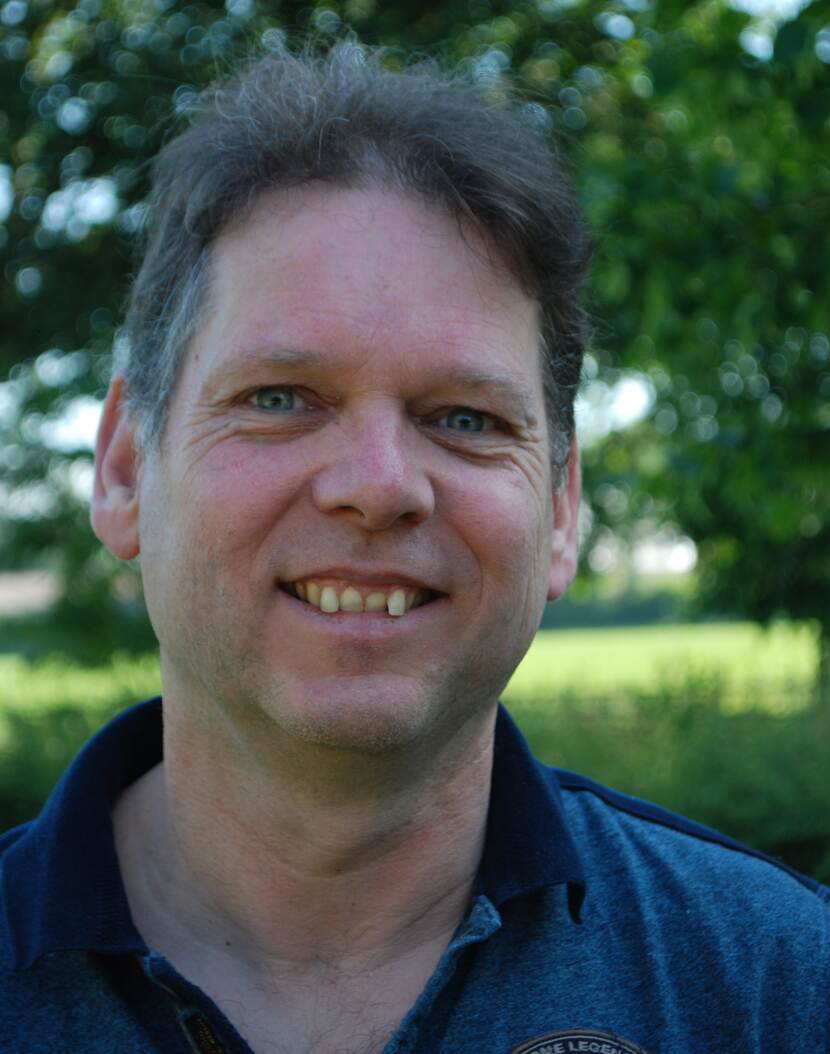
What is your background, and how did you become involved with the NCM?
‘I studied at Wageningen University and worked internationally before becoming a farmer. I grew various crops like vegetables, herbs, cereals and sugar beets. Soon after, organizations such as LTO Nederland invited me to take on leadership roles. I served as chairman of the open-field vegetable growers and was involved with semi-public bodies like KCB (the Dutch organization responsible for the inspection and certification of fresh fruits, vegetables, and flowers), and Naktuinbouw (the Netherlands Inspection Service for Horticulture). Eight years ago, I scaled down my farming activities and stepped away from my board functions. Shortly after, the NCM was founded, and I became its director.’
Why was establishing the NCM necessary?
‘Manure is a complex and politically sensitive topic that has spanned generations. In my student days, concerns centered on acidification and acid rain; now, nitrogen and water quality are the main issues. Numerous local and European regulations, along with diverse interests, make solutions challenging. For instance, provinces may want to promote manure processing but then encounter permit obstacles in meetings. The NCM was founded as knowledge center in 2018 to provide clarity, connect stakeholders, compile and share practical information, set up an agenda, and organize new initiatives.’
What are the NCM's main activities?
‘We don't conduct research ourselves but compile and disseminate knowledge. Every year, we publish a report on the Dutch manure balance, manure treatment plants and the technologies they use, and export potential. We support companies, governments – both local and national – and other stakeholders with practical questions, like understanding the impact of new regulations, new markets or technologies. Collaboration with the Dutch Ministry of Agriculture, Fisheries, Food Security and Nature's Manure team and other departments is very important.’
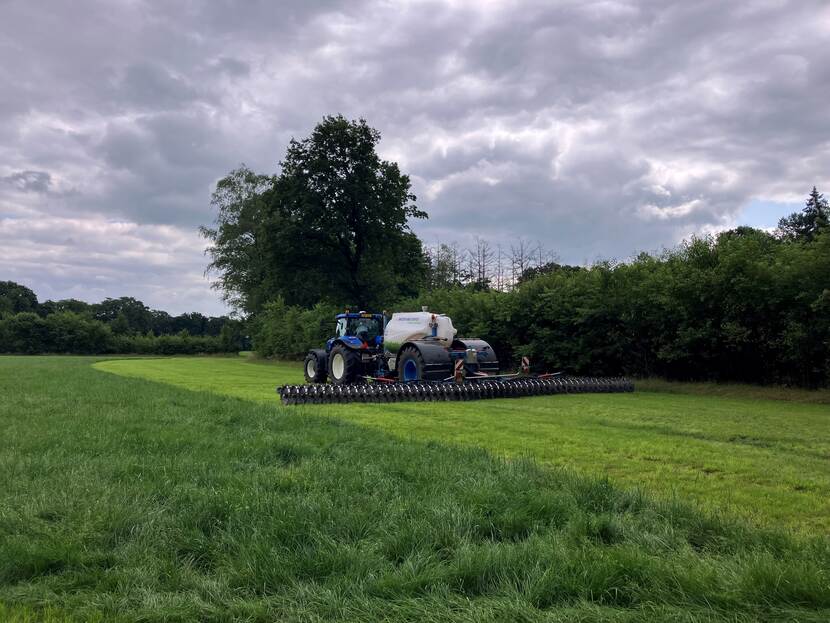
Manure valorization is central to your work. What does it involve?
‘It's about using manure in the most valuable way. Economically, this means reducing transport costs—manure is bulky and expensive to move—or creating higher-quality products appreciated abroad. France, for example, pays for premium organic manure because its agriculture relies heavily on synthetic fertilizers. Valorization also has societal benefits: it closes nutrient loops and reduces environmental harm. Converting methane from manure into green gas cuts greenhouse gas emissions while producing renewable energy. Despite these benefits, some people see manure processing as a necessary response to manure surpluses in certain areas. But what we really want to highlight is that it serves a much bigger purpose: turning the nutrients and organic matter in manure into something far more valuable.’
‘Take methane, for example. If left unchecked, some of it escapes into the air, contributing to climate change as a powerful greenhouse gas. But by extracting it through fermentation, we can turn it into green gas—reducing emissions and making us less reliant on imported natural gas.’
‘It's time to move away from the idea that manure processing is just a side effect of having too much manure. Instead, we should see it as a smart way to unlock its full potential.’
What are the biggest challenges in the coming years?
‘With the derogation ending in 2026 and stricter fertilization norms, we face a significant manure surplus. We expect that the fertilization space will be reduced by 34% on average in the Netherlands. Friesland (a northern province in the Netherlands), for instance, will lose 40% of its capacity. These are estimates made by NCM, in coordination with Statistics Netherlands (CBS), among others. This will lead to manure surpluses, logistical bottlenecks, higher costs, and rising manure prices. Without action, hundreds of thousands of truckloads will be needed annually to transport manure – 400,000 in 2026 and double that by 2030. At the same time, we urgently must significantly reduce the losses to the environment, especially ammonia and nitrate.’
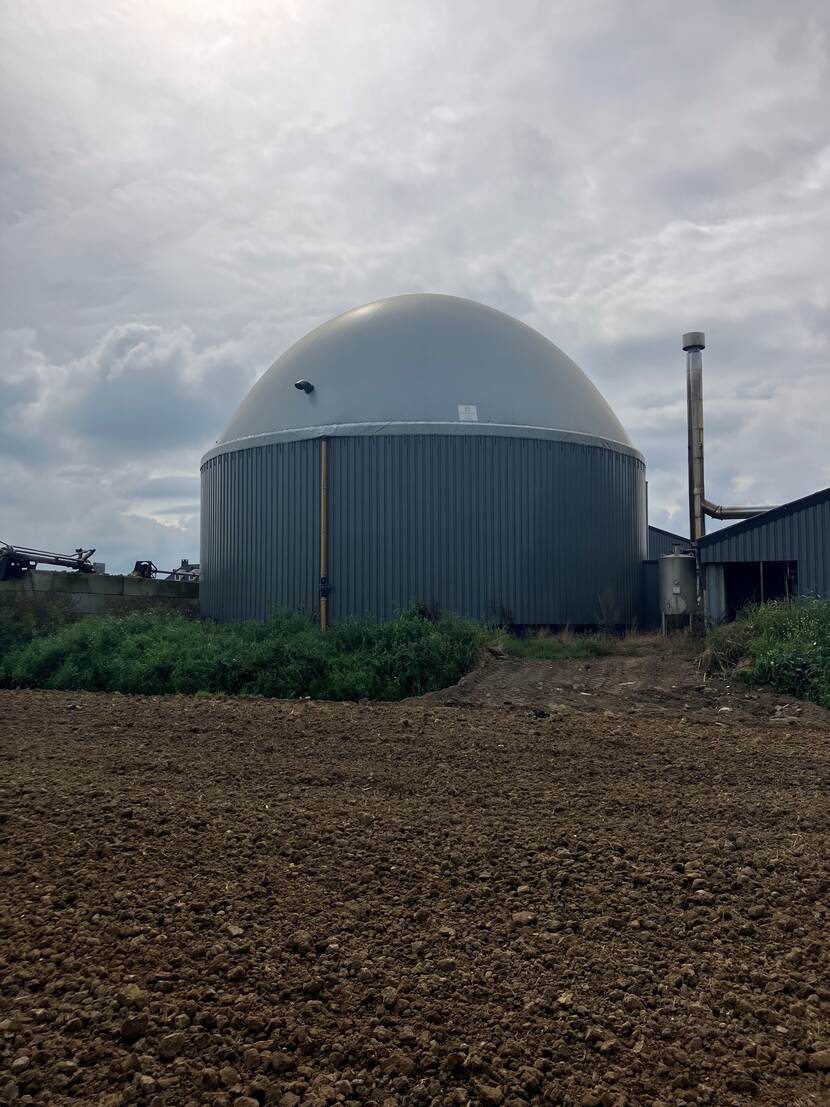
What solutions do you see?
‘For restoring the manure balance, we see three possibilities: less manure production, increased exports, and the use of fertilizer substitutes. Production can be lowered through more efficient feeding or smaller livestock herds. Export opportunities are promising. For example, French agricultural cooperatives actively seek organic fertilizers like manure products. There are also opportunities in a lot of other countries.
‘In our country, I see opportunities for better use of organic fertilizers, particularly through the European RENURE initiative. RENURE (REcovered Nitrogen from manURE) are fractions from manure that are comparable to mineral fertilizers in terms of risk of nitrate leaching. This will allow us to improve water quality and use more circular fertilizers in livestock-dense areas at the same time. For farmers, there are three advantages: decrease in manure transport, less purchase of mineral fertilizers and a better footprint of their crops.’
‘Still, challenges remain, especially in building up export markets. Reliable sales channels and long-term customer relationships are essential, and conflicting interests within the sector persist. Some manure traders are focused on today's high prices, and many companies have a short-term culture, concentrating on immediate results.’
‘The main solutions are manure valorization and restoring the manure balance by less manure production, increased exports, and using fertilizer substitutes’
How does the NCM operate internationally?
‘Together with the VCM (the central point of contact for manure processing in Flanders), Ghent University and Inagro (research and advice center in agriculture and horticulture), we are organizing the international ManuREsource Conference, set for March 2026 in the Netherlands. Experts from about 25 countries will share insights on sustainability, circular valorization, and new technologies. It is a key meeting point for researchers, policymakers, and businesses. We also collaborate with foreign knowledge centers like the VCM (Flemish coordination center for manure processing) and support export missions. Through our network, we identify innovations. A recent example is a Swedish barn system that reduces nitrogen and greenhouse gases loss while improving animal welfare and working conditions and producing high value manure. Danish developments also inspire us and inform Dutch policies and practices.’
‘A crucial partner in our international work is the Netherlands Agricultural Network (LAN). The LAN helps us connect abroad, enabling us to tap into local market opportunities and quickly understand foreign regulations. The network plays an important role in organizing export missions and fostering international collaborations. For example, it assists companies seeking to export manure products to nutrient-scarce regions like France and various Asian countries. The LAN also provides up-to-date information on import requirements and market trends, allowing us to offer targeted advice to businesses and policymakers while promoting sustainable trade relations.’
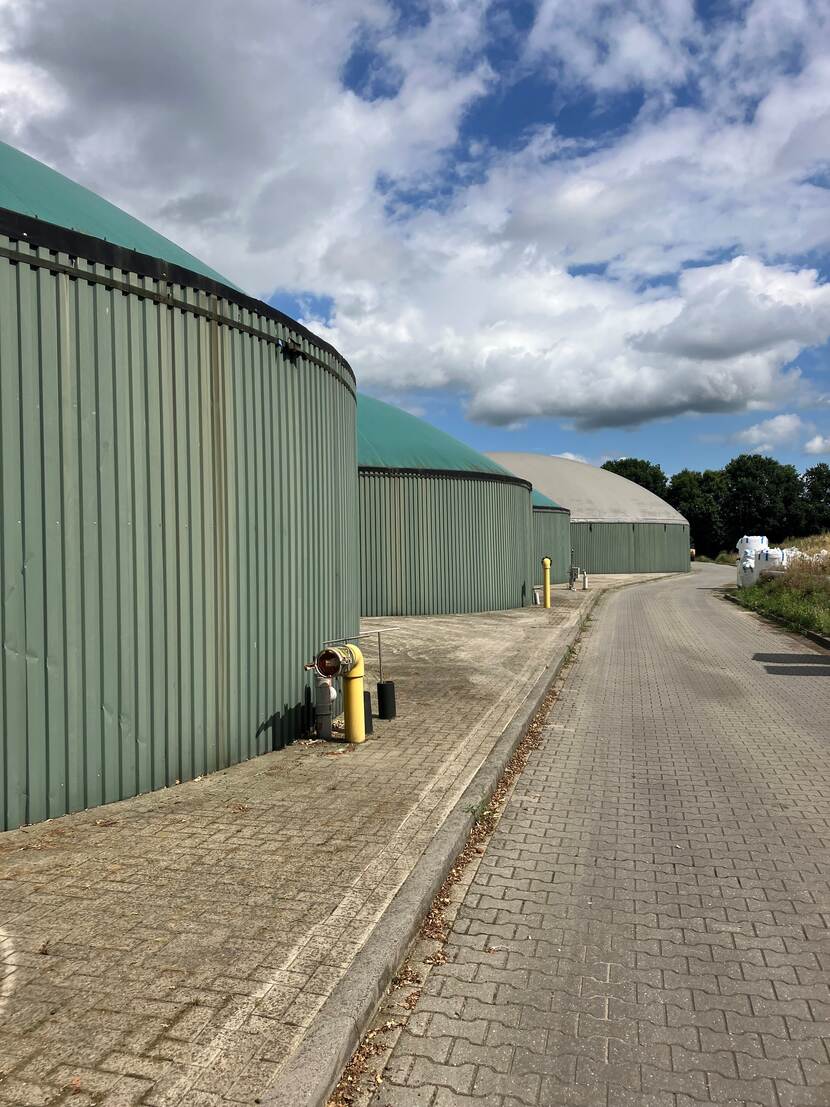
What do you hope to achieve with the NCM?
‘Our goal is to break the deadlock surrounding manure issues. We aim to bring stakeholders closer together and offer practical solutions. While manure will always be a sensitive subject, the right partnerships can drive progress toward sustainable and efficient usage. It is about closing nutrient cycles, protecting the environment, and sustaining a healthy agricultural sector. We see the NCM as a connector – not only within the Netherlands but also with countries facing similar challenges.’
